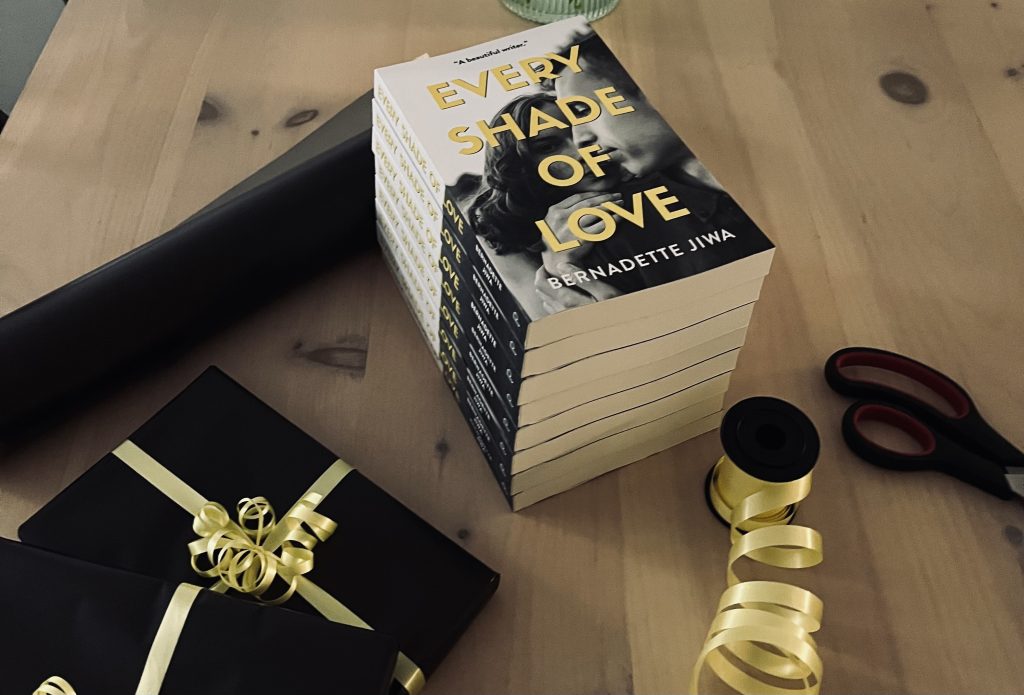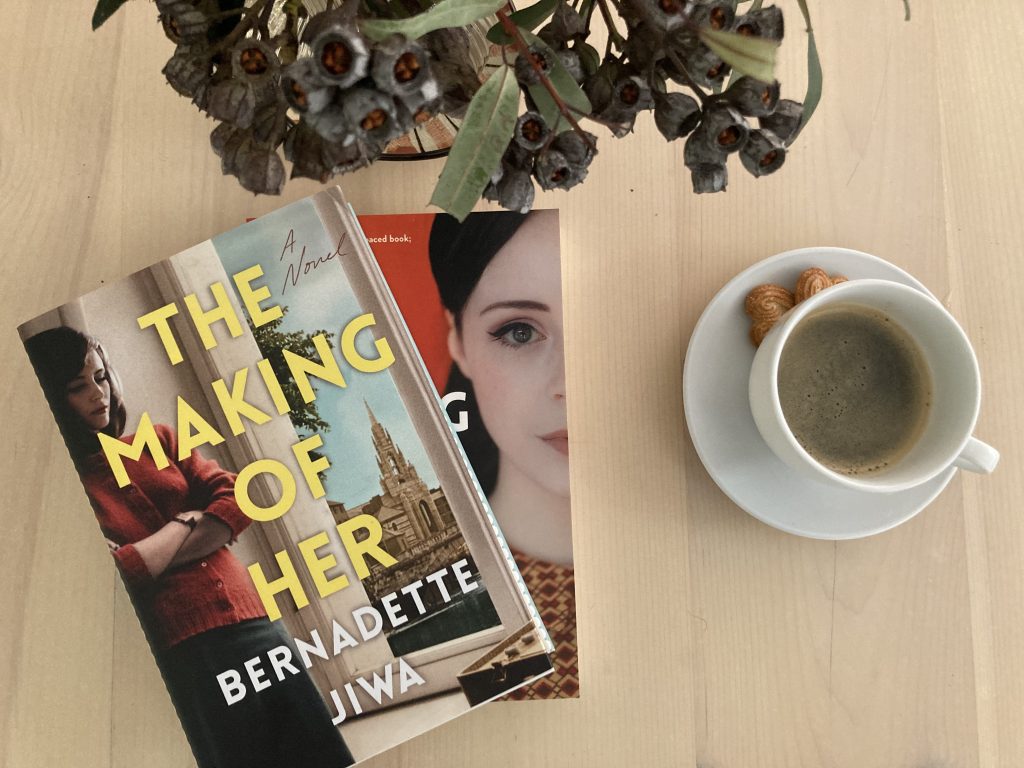Unlock the Magic in Your Story Now
Get the Free 20 questions to Ask Before Launching Your Idea workbook when you sign up for occasional updates.
Get the Free 20 questions to Ask Before Launching Your Idea workbook when you sign up for occasional updates.
Articles filed in: Storytelling
Doing The Work Anyway
filed in Creativity, Meaningful Work, News, Storytelling, Worldview

Some people might say it takes a certain kind of madness to work on a project nobody is waiting for. Who in their right mind devotes months or even years to creating something no one said they wanted? And yet, that’s what our art requires of us. We show up and do it anyway, not because someone asked us to but because our persistent heart tells us we must.
Recently, I published my latest novel, Every Shade of Love. Nobody asked me to write it. No editor was eagerly waiting for me to turn in the manuscript, no publishing house shouting from the rooftops about its imminent arrival.
You didn’t say you wanted this book, but I spent nearly three years making it anyway, with love, for you.
Creativity Is A Journey
filed in Creativity, Meaningful Work, Storytelling
 Eleven years ago, I discovered blogging. Inspired by my clients’ stories and their questions, I began posting weekly, then daily for a while. I hadn’t written for an audience since I left school more than thirty years before. Nobody was more surprised than I was to discover that people wanted to read what I wrote here and in the books that followed.
Eleven years ago, I discovered blogging. Inspired by my clients’ stories and their questions, I began posting weekly, then daily for a while. I hadn’t written for an audience since I left school more than thirty years before. Nobody was more surprised than I was to discover that people wanted to read what I wrote here and in the books that followed.
Fast forward to 2019, when I decided it was finally time to follow my heart and begin writing my debut novel set in Dublin. And today, I’m thrilled to share it with you. The Making of Her publishes in the U.S. today and is available through all great bookstores. The Australian edition was published in May with an equally gorgeous cover.
You can hear a sample of Aoife McMahon’s brilliant audiobook performance here.
If I hadn’t spent a decade blogging, I wouldn’t have had the courage to begin writing a novel. I have every reader who subscribed to, read and shared my blog to thank for showing me that creativity is a journey, not a destination.
Storytelling For The Rest Of Us
filed in Story Skills, Storytelling, Success

Every decision you’ve ever made was influenced by a story—every single one. From the decision about whether to wear a mask during a pandemic, to the charities you choose to support.
A story you heard, the story you believed or that story you told yourself, had an impact on those choices.
If stories are our most persuasive technology, why don’t we do more to put them to work? Why don’t we leverage the power of stories every day in our work and our lives?
Over the past fifty years, we’ve come to believe that storytelling is a professional discipline. A skill for the master storytellers at the Disney’s or the Saatchi and Saatchi’s of the world. We’ve stopped honing the story skills that came so naturally to our ancestors. We’ve forgotten how to tell small, powerful, everyday stories.
I’m on a mission to change that and to help more people leverage the power of storytelling to become their most inspiring selves.
You don’t need an epic story to be a great storyteller. You just need to adopt the posture of a storyteller and to practice the craft. Together with a team of incredible coaches, that’s what I’ve been helping people to do for the past year.
If you want to reclaim your story skills, you can sign up for details about our next workshop.
Image by Photo by Niko Virtanen license Creative Commons BY
The Captive Vs. The Captivated
filed in Story Skills, Storytelling
 When people are given the microphone or stand on a stage, they have our attention, we listen. They have a captive audience for eighteen minutes, an hour or maybe a day—if they’re lucky.
When people are given the microphone or stand on a stage, they have our attention, we listen. They have a captive audience for eighteen minutes, an hour or maybe a day—if they’re lucky.
Here’s the thing, you don’t need a captive audience to be heard. You need better true stories, well told. You don’t have to rely on luck to tell better stories, you can do it with intention and practice—by design.
The world is waiting, not to be held captive, but to be captivated by new voices—for the hopeful messages and stories, each of us has to tell.
You don’t need permission to take the stage. You need to find and practice telling stories that matter.
*Today is the last day to register for the current session of The Story Skills Workshop.
Here is a special link for my blog readers to join us.
Image by Tommi Boom
The Myth Of The Gifted Storyteller
filed in Story Skills, Storytelling

Over and over again, we’ve heard people like Steve Jobs described as ‘a gifted storyteller’. We’ve come to believe that storytelling is an art reserved for the chosen few—that great storytellers are born, not made. How can that possibly be true?
What all great storytellers have in common is more than a talent for storytelling. They aren’t ‘naturals’ or ‘born storytellers’. What they are is ‘practised storytellers.’
Last weekend I was at an event where the legendary author Margaret Atwood spoke. When someone asked if she read fiction and why, she told the audience she reads to understand. ‘I want to know how they did that,’ she said. One of the best storytellers of our generation, a woman who has twice won the Booker Prize, whose books sell in their millions, reads other people’s stories to learn from them and make her stories better.
Storytelling is an act, something you practice—a skill you can learn and get better at.
*The Story Skills Workshop is back by popular demand. We open for registration on March 3rd. You can register for more information by visiting here.
Image by David Geller
The Best Stories Are Lived
filed in Marketing, Meaningful Work, Story Skills, Storytelling
 It’s Sunday afternoon, and I’m visiting the smallest branch of my favourite chocolate shop. It’s a fourth-generation, family-owned and operated business, and it shows.
It’s Sunday afternoon, and I’m visiting the smallest branch of my favourite chocolate shop. It’s a fourth-generation, family-owned and operated business, and it shows.
The enthusiasm of the assistants is palpable.
‘I’ve never worked for a company like this,’ the woman behind the counter says. ‘I’ve been here for five years, and I love it!’
When I ask why she talks about how much the owners care.
‘They’d do anything for us. They even get up on a ladder to change our lightbulbs. They remember our birthdays. They want the best for our customers and us.’
As the conversation progresses, ‘they’ becomes ‘we’.
‘We don’t export. We’re just proud to sell a beautiful Australian product at home.’
Storytelling is more than clever copy. It’s the act of showing up, with intention.
Your story is more than a tagline or a positioning statement—it’s not only what you say—it’s what you do.
The best stories are not just told, they are lived.
Image by Avant
Simple Questions To Ask When Your Marketing Isn’t Working
filed in Marketing, Storytelling, Strategy

My marketing isn’t working.
This sweeping declaration leads us to draw (sometimes incorrect), conclusions that influence our future marketing plans and business strategy. We can’t fix our marketing when we don’t know why it’s broken. But where do we start?
Here are seven questions to ask when your marketing isn’t working as well as you’d like.
7 Questions To Ask And Answer When Your Marketing Isn’t Working
1. Why isn’t this marketing working?
Not necessarily why, in fact, but why do you think—what’s your best guess as to the reasons you’re not achieving the results you want?
2. Did we reach enough of the right people?
How many people do you need to resonate with to achieve the numbers of sales or attract the clients you want?
3. How clear is the message?
Does your message clarify how exactly you solve your prospective customer’s problems, unmet needs or unspoken desires?
4. How well does the message resonate?
Do you know enough about your ideal customers to craft a message that resonates with them and calls them to act?
5. Are you meeting our prospective customers where they are?
Did you use the right medium, in the right place at the right time?
6. Did you give it enough time?
Is the marketing broken, or are you impatient to see results?
7. What would you change given your response to the first six questions?
What one thing can you do today to improve your marketing?
All marketing is testing. Rinse and repeat.
Image by Tim Mossholder
On Finding The Right Customers
filed in Marketing, Storytelling, Strategy

Building a sustainable and fulfilling business isn’t just about finding enough customers—it’s about finding enough of the right customers.
Here are ten questions you can ask yourself to guide your thinking about what kind of customers will enable you to do your best work.
10 Questions For Finding The Right Customers
1. If you could only work with a handful of customers, which would you choose?
2. Why are these customers ideal for you?
3. What do your ideal customers want from a service provider?
4. What do you want from your customers?
5. What story will you tell customers about why you are the best fit for them?
6. What story will you tell customers about why they are the best fit for you?
7. How will you price your products and services to attract only those ideal clients?
8. How many of these ‘right customers’ do you need to build a viable business?
9. Where will you find your ideal customers?
10. How will your ideal customers find you?
Customer-company fit is underrated.
Image by Cristina

